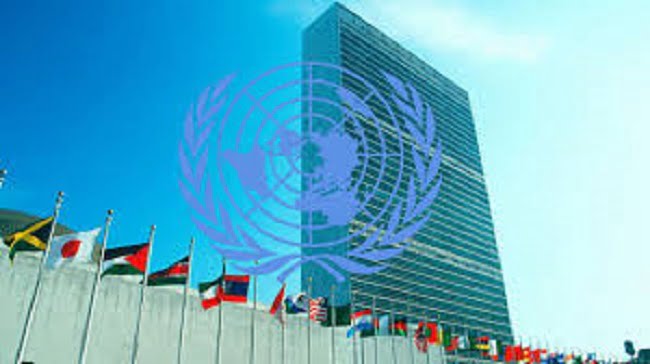
UN unanimously adopts Bangladesh’s flagship resolution on ‘Culture of Peace’
 The United Nations has unanimously adopted Bangladesh’s flagship resolution on the ‘Culture of Peace’.
The United Nations has unanimously adopted Bangladesh’s flagship resolution on the ‘Culture of Peace’.
While introducing the resolution in the General Assembly, the Permanent Representative (PR) of Bangladesh Ambassador Rabab Fatima on Wednesday called upon the UN Member States and all relevant stakeholders to spread the message of ‘Culture of Peace’ to overcome the challenges posed by Covid-19 pandemic.
The resolution was first adopted on September 13, 1999, during the first tenure of Prime Minister Sheikh Hasina.
Since then, Bangladesh has been facilitating this resolution at the Assembly every year and also convening a High-level Forum on the Culture of Peace in the General Assembly.
Also, this year’s High-Level forum which was held on September 10, focused on the theme “The Culture of Peace: Change our world for the better in the age of COVID-19,”.
The Forum recognized the relevance of culture of peace in responding to the unprecedented crisis posed by the pandemic.
Referring to the alarming rise of intolerance during the pandemic situation, Bangladesh Ambassador underscored the growing importance of culture of peace.
The unanimous adoption of this resolution is a demonstration of the international community’s trust and confidence in the leadership of Bangladesh in promoting the notion of culture of peace.
With the support of the international community, this notion has become a dominant the mein all major UN discourses.
“In the rapidly changing global security scenario, it has proved to be a useful tool to complement UN Charter obligations of maintaining peace in the world,” Ambassador Fatima added.
“The notion of culture of peace is an integral part of our national agenda for people-centric development,” said Ambassador Fatima.
Bangladesh remains fully committed to the implementation of this notion through action-oriented policy interventions in eight programme areas, such as, education, sustainable economic and social development, respect of human rights, equality between men and women, democratic participation, understanding tolerance and solidarity, free flow of information and knowledge and international peace and security.
Ambassador Fatima called for promoting a culture of peace and non-violence through peace education and global citizenship education for the youth to understand values such as peace, tolerance, openness, inclusion and mutual respect, which are essential in developing a culture of peace.
She highlighted various national initiatives including those aimed at maintaining inter-religious harmony, preventing violent extremism and ensuring inclusive development.
“As we continue to fight the COVID-19 pandemic and build back better, let us recommit ourselves to the Declaration and Programme of Action on a Culture of Peace in our quest for peace for our people, for the world at large and to counter all such evils which obstruct us from building a better world,” she added.
The resolution has been adopted unanimously with co-sponsorship of 110 member states.
A large number of member States spoke during the adoption of the resolution.
Source: UNB
Sunbd/NJ/8:13/12.03.2020
Copyright © 2026 Sunbd24. All rights reserved.